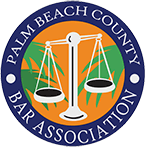If you were recently arrested in Palm Beach Gardens, Florida, for Driving Under the Influence (DUI) of alcoholic beverages, chemical substances, marijuana or controlled substances, you were likely asked to complete a Field Sobriety Exercise. Throughout Florida and, more specifically, Palm Beach Gardens, law enforcement officers utilize various tools to determine whether drivers are impaired in their normal faculties.
One of the primary methods used is the Standardized Field Sobriety Test (SFST), which is called a test but is really a series of exercises. If you were asked to perform one of these exercises, you may wonder, is it possible to pass a field sobriety exercise? In this post, we’ll provide an in-depth look at what SFSTs are, how they work, the accuracy and effectiveness of Standardized Field Sobriety Exercises, and the challenges they may present.
What is a Field Sobriety Test?
A Field Sobriety Test (FST) is a series of exercises that law enforcement officers administer roadside in Palm Beach Gardens and the rest of Florida when they suspect a driver may be impaired by alcohol or drugs. The purpose of these exercises is to assess a driver's physical and cognitive abilities, helping officers make an informed decision about whether there is probable cause for a DUI arrest. FSTs are designed to measure coordination, balance, attention, and the ability to perform tasks that are generally simple for non-impaired drivers. They are used to help officers build a case and use them as evidence to demonstrate probable cause when arresting an individual for driving under the influence.
.jpg)
The 3 Most Common Field Sobriety Tests
Field Sobriety Tests typically involve three primary exercises that officers use to observe the behaviors and responses of suspected impaired drivers:
- Horizontal Gaze Nystagmus (HGN): This is a physiological exercise involving eye movement. Officers look for an involuntary jerking of the eye as it gazes to the side. Under normal circumstances, this jerking, or nystagmus, occurs at high peripheral angles, but in impaired individuals, it may occur at lesser angles.
- Walk-and-Turn (WAT): This divided attention exercise assesses an individual's ability to complete tasks with both physical and mental demands. The suspect must listen and follow instructions while performing physical movements. Impairment is typically indicated if the suspect cannot keep balance, stops while walking, does not touch heel-to-toe, steps off the line, uses arms to balance, makes an improper turn, or takes an incorrect number of steps.
- One-Leg Stand (OLS): This exercise requires a suspect to stand with one foot approximately six inches off the ground and count aloud by thousands until told to put the foot down. Officers look for signs of swaying, using arms for balance, hopping, or putting the foot down prematurely, which may indicate impairment.
Conducting the Field Sobriety Test
When conducting field sobriety exercises, officers must follow standardized procedures to ensure the validity and reliability of the exercises. The conditions under which these exercises are administered also play a crucial role in their effectiveness. For example, exercises should be conducted on a flat, hard, non-slippery surface in a well-lit area to ensure accurate observation of the suspect's performance.
How Reliable Are Field Sobriety Tests?
Although Standardized Field Sobriety Exercises are widely used by DUI enforcement in Palm Beach Gardens and the rest of Florida, they are not without their limitations and have been subjects of controversy due to their perceived reliability. According to studies conducted by the NHTSA, when administered precisely according to training, the SFSTs are between 82% and 91% accurate in predicting whether a driver's blood-alcohol concentration is 0.08% or higher.
Of course, since Field Sobriety Exercises are administered by humans and performed by humans, they can never be administered 100% accurately. Officers administering the exercise at a DUI checkpoint may lack the proper training necessary to score the exercise accurately or give proper instructions, further inciting nervousness or confusion in drivers asked to perform one of these exercises. Additionally, the following factors must also be considered when evaluating the reliability of any Standardized Field Sobriety Test.
- Subjectivity: One major criticism of field sobriety exercises is their subjective nature. The determination of impairment largely depends on the officer’s interpretation of the exercise performance.
- Physical Conditions: Individuals with physical impairments, injuries, older age, or certain medical conditions might struggle with these exercises under normal circumstances, regardless if they are under the influence of any alcohol, drugs, or other controlled substances.
- Environmental Factors: External factors such as weather, lighting, and road conditions can also affect the outcome of these exercises, particularly when performed at night or on the side of a road as where many sobriety and DUI checkpoints are.
Are Field Sobriety Tests Mandatory in Florida?
Drivers must know that while you may be asked to perform these exercises, you also have rights. In Florida, a person can legally refuse to take a field sobriety exercise without direct legal penalties (such as those associated with breathalyzer refusal under implied consent laws). In fact, in Palm Beach Gardens and the rest of Florida, the refusal to perform one or all three Field Sobriety Exercises can not be used against you in court. A chemical test such as a breathalyzer or blood test can be used as evidence in court. The refusal to submit a breathalyzer or blood test does have its own set of consequences which is important for you to know to maintain your driver’s license and driving privileges.
How Does a Field Sobriety Test Work?
Field sobriety exercises are designed to assess the physical and cognitive impairment of a driver suspected of operating under the influence. An officer administers these exercises on the roadside and observes the driver's ability to perform tasks that are often taken for granted when sober. The specific instructions and what officers observe during the exercises help them determine whether further alcohol or drug testing is warranted.
What is the Hardest Sobriety Test to Pass?
Among the SFSTs, many drivers find the One-Leg Stand particularly challenging. This exercise requires physical balance and demands that the driver focus on several tasks at the same time (balancing, counting, and listening to instructions). These combined requirements make it difficult for many individuals, especially those who might have balance issues unrelated to alcohol or drug use.
Can a Sober Person Fail a Field Sobriety Test?
Yes, a sober person can fail an SFST (Standardized Field Sobriety Test) or field sobriety exercise. Factors such as fatigue, nervousness, natural lack of coordination, certain medications, or other physical conditions can lead to failing these exercises even without any alcohol or drug consumption.
What to Do After a DUI Arrest in Palm Beach Gardens
In Palm Beach Gardens and throughout Florida, you have 10 days from the date of your arrest to challenge the suspension of your license through the DMV. In this video, DUI attorney Matthew Konecky explains your two choices and the steps you should take next.
Contact Our Palm Beach Gardens DUI Lawyer for Legal Representation
SFSTs (Standardized Field Sobriety Tests) or field sobriety exercises are a common tool used by police officers in Palm Beach Gardens, Florida, and across the country to help determine if a driver is impaired. While these exercises are standard procedure, their results are not always definitive and can be contested in court. As a DUI lawyer in Palm Beach Gardens, I have extensive experience challenging the results of field sobriety exercises to protect my client's rights.
If you have been charged with a DUI based on the results of a field sobriety exercise, it is crucial to seek skilled legal representation immediately. Contact our office today to discuss your case and explore your legal options with our Palm Beach Gardens DUI lawyer. Our expertise and dedication can make a significant difference in the outcome of your case.
For more information about DUIs, download our free guide, “What You Must Know About Your DUI Case Before You Do Anything: Attacking DUI Myths That Will Hurt Your Case,” to get more information about DUI arrests right now.














